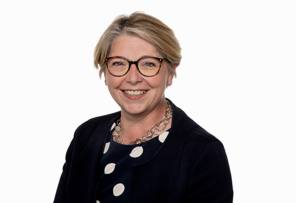

Bank of England governor Andrew Bailey told MPs yesterday (May 16) “there isn’t a lot we can do” about inflation forecasts of 10 per cent, blaming a series of unprecedented shocks to the UK and wider global markets.
In Bailey’s latest annual report for the Treasury Select Committee, he said the Monetary Policy Committee’s latest central projection for consumer price inflation is expected to rise over the remainder of the year, averaging slightly over 10 per cent at its peak in the final quarter of 2022.
In March, inflation hit a 30-year high of 7 per cent, soaring above the Bank of England’s 2 per cent target. The base rate also rose to 1 per cent this month, following a series of rises since December when it stood at 0.1 per cent.
The central bank’s governor admitted “this is a bad situation to be in”.
“It’s a very, very difficult place to be,” Bailey said in a Treasury Select Committee hearing yesterday. “To forecast 10 per cent inflation and to say there isn’t a lot we can do about it is an extremely difficult place to be.”
Bailey blamed the impact of the Russia-Ukraine war, which he said the central bank could not have predicted, along with the Covid-19 pandemic.
“A sequence of shocks like this, which have come really one after another with no gaps in between them, is almost unprecedented,” he said.
One future risk Bailey cited as a result of the war was food prices. With Ukraine being a significant exporter of grains such as barley, corn and wheat, the governor suggested the at-war country’s current inability to export crops was “a major worry for this country [UK]”.
MPs expressed their concerns over the rising base rate, suggesting the Bank initially said it would stop at 1 per cent, but that Bailey’s latest report suggests this may not be the case.
Bank of England deputy Sir Dave Ramsden, who also attended the committee hearing, said the central bank started quantitative easing in March 2009, but is now considering the case for quantitative tightening, which he said was "almost unprecedented".
“What we said in August and what we’ve consistently stuck to since is that we would begin to consider the case for selling guilds when we got to 1 per cent,” said Ramsden.
Quantitative easing is when a central bank purchases longer-term securities in order to increase the supply money, encouraging lending and investment. Quantitative tightening is when the central bank decreases the amount of liquidity within the economy.
Ramsden said the Bank will set out the plans for guild sales in August, following a consultation.
“Quantitative tightening will be happening in the background, depending on what the committee decides," he said.
ruby.hinchliffe@ft.com



